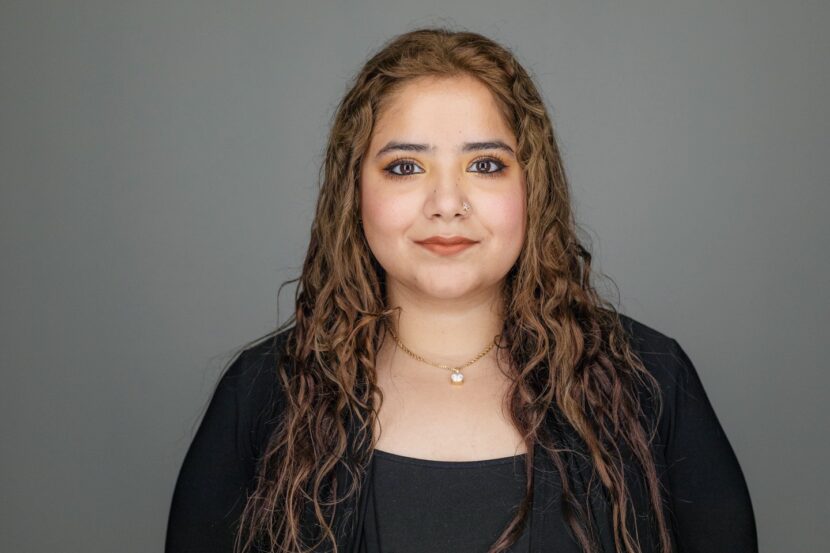Empowering Scholars: WSOS volunteer finds inspiration in supporting student essays
Maha Balouch was inspired to volunteer for Washington State Opportunity Scholarship (WSOS) after receiving an email from the human resource department at Benaroya Research Institute. Upon looking into WSOS and learning about its mission, she became motivated and excited to volunteer her services. As a clinical research quality and compliance specialist, she eagerly reviewed applicant essays for the Baccalaureate Scholarship. Balouch shares her perspective on the responsibilities of a WSOS volunteer, her decision to support Opportunity Scholars, and her excitement about becoming a mentor.

1. What was your experience like volunteering to review essays for applicants?
The rubric for reviewing essays was well put together because it encouraged me to not knock off so many points based on grammar and spelling because English could be an applicant’s second language. This helped me provide an unbiased review, as I was able to focus on their experiences and challenges and how they plan to use that as building blocks for their own progress, not only in this program but onwards.
2. What did you learn about Scholars from reading the essays?
I just learned how diverse their backgrounds are, and some people have more distinct struggles than others. Also, I learned how the pandemic has truly altered our society, for one of the common denominators across several essays addressed the difficulty in procuring volunteering opportunities and internships, for there were none available.
And when I noticed that common denominator, I had to correct my own bias because I had to remind myself as to how different times were before the pandemic began.
3. You mention how your education was different from students entering college now. Can you talk about your own college experience?
I transferred from a quiet community college to a bustling university, which, to me, was very stressful. I started thinking about when I will graduate and what I will do after graduation. Where can I intern? And how can I build my resume? With all those thoughts circling around at the same time, on top of the difficult classes I was taking, it became quite overwhelming for me to the point that I had to go into counseling to learn how to manage my anxiety. So, when I was offered an opportunity to mentor transfer students, I was able to be the support that I needed.
4. You mention having a mentor, when did you meet them, and how did they support you?
My mentor is actually my former boss, whom I met during my past role as a research coordinator. He taught me valuable skills in approaching individuals from the pharmacy industry, research methods, as well as how to prioritize tasks. He guided me in effective communication techniques, including how to engage with our sponsors and confidently address a room full of doctors and scientists.
5. While living in Florida you mentored transfer students. What are some ways you supported them?
When I was a mentor for transfer students, I was able to be the support that I needed. Through this role, I advised transfer students on how to speak to professors for opportunities, manage time and stress, as well as reassuring them that it is okay to take things one day at a time. Additionally, I served as a mentor for college students with autism who faced behavioral and social challenges while seeking employment opportunities and taking classes. We worked together to practice navigating various situations, such as how to respond when someone offends them. I emphasized the importance of communication and understanding rather than resorting to anger or aggression. Each student with autism had unique needs, ranging from managing behavioral issues to addressing anxiety-related concerns, and for these reasons, this role was just as challenging as it was rewarding.
6. Considering your own experience, what should someone look for when considering a mentor?
I would encourage them to talk to that person and see if their style reverberates with them because sometimes some individuals are assiduous and meticulous in ways that others are not. I would ask, “what exactly are you looking for if you’re looking for someone who’s in an industry?” “Does this person do something within the line of what you’re looking for?” For instance, if I wanted to be a seamstress, I probably would not be reaching out to a physician for career advice.
Balouch’s journey as a WSOS volunteer and mentor exemplifies the power of mentorship and the impact it can have on individuals pursuing higher education. Through her own experiences and insights, Balouch has contributed to the success and personal growth of numerous Scholars, leaving a lasting impact on their educational journeys.
Interested in supporting Scholars? Reach out to skillsthatshine@waopportunityscholarship.org to learn how you can make a difference, too.
